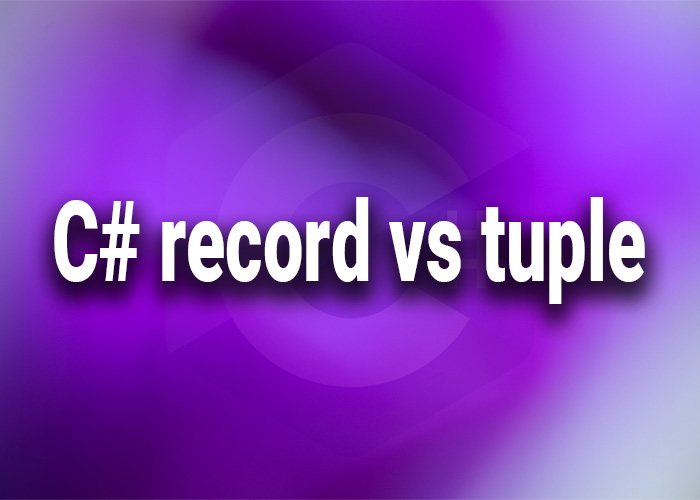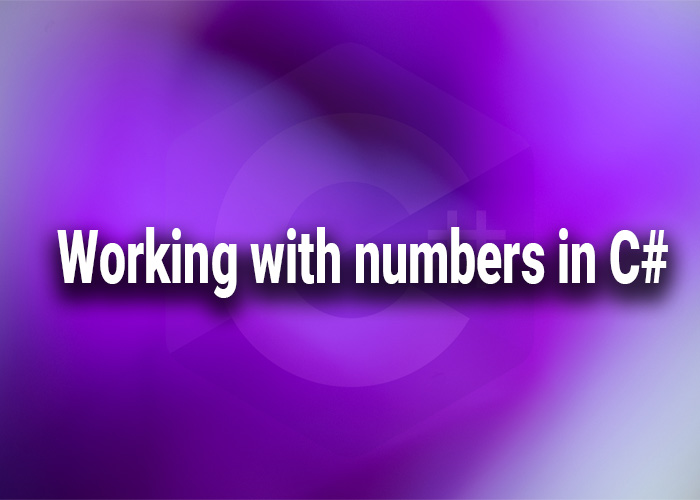Comparing C# Records and Tuples
In C#, both records and tuples serve as data structures that can simplify code and improve readability. However, they are designed for somewhat different purposes and have unique characteristics that make them suitable for specific scenarios. This article explores the differences between records and tuples in C#, their strengths, weaknesses, and when to use each.
What is a Record?
Introduced in C# 9.0, records are reference types that provide built-in functionality for immutability and value-based equality. They are primarily used to encapsulate data with minimal overhead and are ideal for creating data models where the identity is based on the data it holds rather than the instance identity.
Key Features of Records:
- Immutability: Designed to be immutable, meaning once a record is created, its data cannot be changed.
- Value-Based Equality: Records use value-based equality checks rather than reference-based, meaning two records are considered equal if their contents are the same.
- With Expressions: Allow for non-destructive mutation, creating new instances with altered values based on existing instances.
What is a Tuple?
Tuples in C# are lightweight data structures introduced in C# 7.0 that allow the grouping of multiple elements into a single object without having to define a separate type. Tuples are very useful for returning multiple values from a method and handling them with minimal fuss.
Key Features of Tuples:
- Lightweight: Tuples are less formal and quicker to define than records or classes. They do not require a separate type definition.
- Immutable: The elements of tuples are immutable in the sense that the tuple itself cannot change the references of its elements once created, but if the elements are reference types, their internal state can change.
- Deconstruction: Tuples support deconstruction, allowing you to easily break them down into separate variables.
Comparison of Records and Tuples
Creation and Usage
Records: Typically defined as types within a namespace, records are best used when you need a type that will be reused, especially when part of a domain model.
public record Person(string FirstName, string LastName);
Tuples: Often created on-the-fly and not typically predefined, tuples are ideal for quick, temporary groupings of values, especially for method returns.
var person = ("John", "Doe");
Performance and Capabilities
Records: Provide more functionality, such as built-in methods for equality checks and with expressions. They are slightly heavier due to these features but provide more structure and readability in code.
Tuples: Generally faster to instantiate and less memory-intensive compared to records. However, they lack features like custom methods or property names unless you use named tuples.
When to Use Each
Use Records When:
- You need a type with a descriptive name and defined structure.
- You are modeling complex data that benefits from immutability.
- You require value-based equality to treat different instances as the same based on their data.
Use Tuples When:
- You need to return multiple values from a method without creating a formal type.
- You are dealing with temporary data groupings not used elsewhere in your code.
- You prefer simplicity and minimalism in local data handling.
Conclusion
Choosing between records and tuples in C# depends on the specific requirements of your project and the context in which you are working. Records offer a more formal and feature-rich approach suitable for permanent data structures that benefit from immutability and value-based equality. Tuples, on the other hand, are best for lightweight, temporary data grouping, especially when you need to quickly group and pass data without the overhead of a full type definition. Understanding these differences can help you make more informed decisions in your C# development projects.





